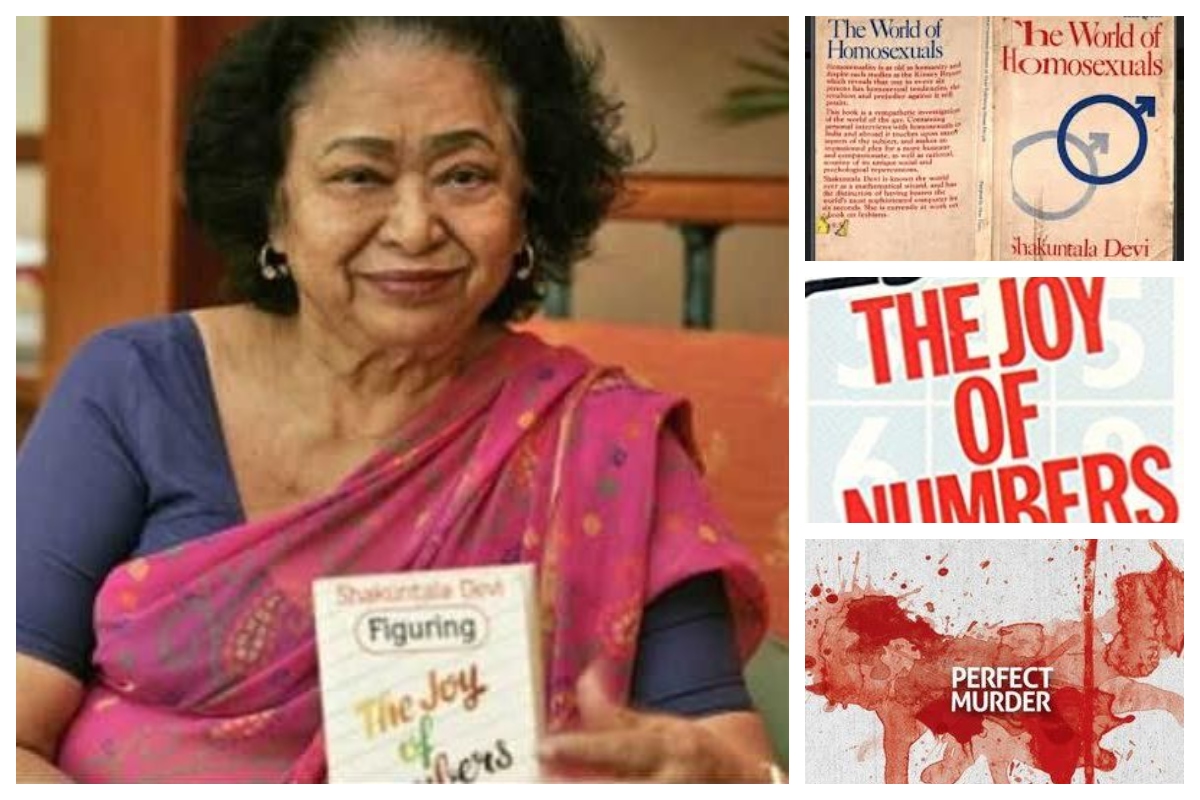Teachers’ day special: Iconic bollywood portrayals of educators
Celebrate Teachers' Day with a look at five iconic Bollywood performances that beautifully capture the essence of educators on screen.
In 1976, he was recorded by the Guinness Book of Records for calculating the 73rd root of a 500-digit number in 2 minutes and 43 seconds.

(SNS Photo)
On her first day at school, fiveand- a-half-year old Matilda could amaze her teacher, Miss Jennifer Honey – Matilda recited the two-times table “for quite a long way”, she even did harder mental calculations such as “two times four hundred and eighty-seven”, “twelve sevens” and multiplication of “fourteen by nineteen”.
While the story of Roald Dahl’s Matilda ends when she was just promoted to the next class, Shakuntala Devi’s recent biopic was an opportunity of imagining the adulthood of a computational wizard like Matilda through real-life fiction. The movie certainly depicts the making of a legendary mathematical wizard, writer and astrologer, and presents a buoyant, inspiring portrait of a woman who lived life on her own terms.
Shakuntala Devi asserted that human beings are not trees; they have legs and not roots. And she seemed a citizen of the world. However, most people know Shakuntala Devi as a Mathematics genius. Even a recent article in ‘The Guardian’ by Mike McCahill is titled “Shakuntala Devi review – spirited biopic of a mathematical genius”. This is where I strongly differ – the term ‘genius’ is quite sloppily used, I believe.
Advertisement
She was an example of a computational ‘wizard’, which is a help feature of a software package that automates complex tasks by asking the user a series of easy-toanswer questions. A ‘genius’, on the contrary, can provide new theories, new techniques – which are beyond the scope of a computer or a machine. A ‘genius’ is a person who displays exceptional intellectual ability, creative productivity, universality in genres or originality, typically to a degree that is associated with the achievement of new advances in a domain of knowledge.
While genius is usually associated with talent, German philosopher Arthur Schopenhauer believed that talent hits a target no one else can hit, but genius hits a target no one else can see. In his 2011 book ‘Genius: A Very Short Introduction’, British author Andrew Robinson discussed the characteristics that can be used to call someone a ‘genius’.
He also argued why Homer, Leonardo da Vinci, Mozart, Shakespeare, Tolstoy, Marie Curie, Darwin, Einstein, Galileo, and Newton are geniuses, but even Picasso or Virginia Woolf may not be. However, Shakuntala Devi was a phenomenal, Guinness World Records-noted mathematician – no doubt about that. Her mathematical ability is traced back from her childhood despite not having any formal education.
She earned name, fame and a lot of money by conducting Mathematics shows all over the world for decades during the second half of the 20th century, under the stage name ‘Human Computer’, the sobriquet she earned. The present movie, however, is depicted from the unusual angle of her daughter, Anupama. And, in the process, the portrayal of an interesting personality like Shakuntala Devi has unfortunately been confined to mostly ‘motherhood’.
However, she was a wonderwoman – much more than a mother – no doubt about that. Whether Shakuntala Devi and Anupama reconciled their differences or not might be an entertaining film story; it, however, deviates the focus from the life of an extraordinary personality. In an old video called ‘Mathematical Bonanza’, recorded by Doordarshan in 1977, where Shakuntala Devi was answering impossible questions regarding mathematical calculations from the audience, she said, “Machines have their limitations whereas humans have no limitations.”
Similarly, Miss Honey, Matilda’s teacher, believed that “the human brain is an amazing thing”, and Matilda thought that it’s a lot better than a pocket calculator. However, the human brain is not a competitor of computers, rather it would keep on creating more and more sophisticated machines whose capabilities are beyond our imagination. Incidentally, such magical calculation power, now-a-days, has very limited applicability beyond stage shows although it could have much greater potential during the infancy of computers.
That can be exemplified by the instance of the Dutch mathematician, Willem Klein. Klein also had the ability to carry out complicated calculations in his head, very fast. In 1976, he was recorded by the Guinness Book of Records for calculating the 73rd root of a 500-digit number in 2 minutes and 43 seconds.
However, far from being limited to stage stunts, Klein’s mathematical dexterity has been seriously used for years at the European Organization for Nuclear Research (CERN), who hired him in 1958. Before electronic computers were available at CERN, Klein was their computer. Whenever a scientist ran into a mathematical problem that, might take days, weeks, months to work out on paper, it was presented to Klein to get an almost instantaneous answer.
However, with computers becoming more powerful in the 1960s and when physicists began programming more, Klein was more often used as a mascot for CERN to visitors, which he found disheartening. However, Roald Dahl’s Matilda was far more than a computational wizard. She had read lot of books including Charles Dickens’ works, even before her admission to school, and she could compose fantastic limericks at that age. Thus, Shakuntala Devi’s motherhood-driven biopic may not be a satisfactory projection of Matilda’s adulthood.
The wings of our imagination still have plenty of scope to wander around. In one scene, Shankuntala Devi asks her daughter: “Why should I be normal, when I can be amazing?” We still wonder what could be Matilda’s amazing adulthood, especially in this computer-age?
(The writer is Professor of Statistics, Indian Statistical Institute, Kolkata)
Advertisement